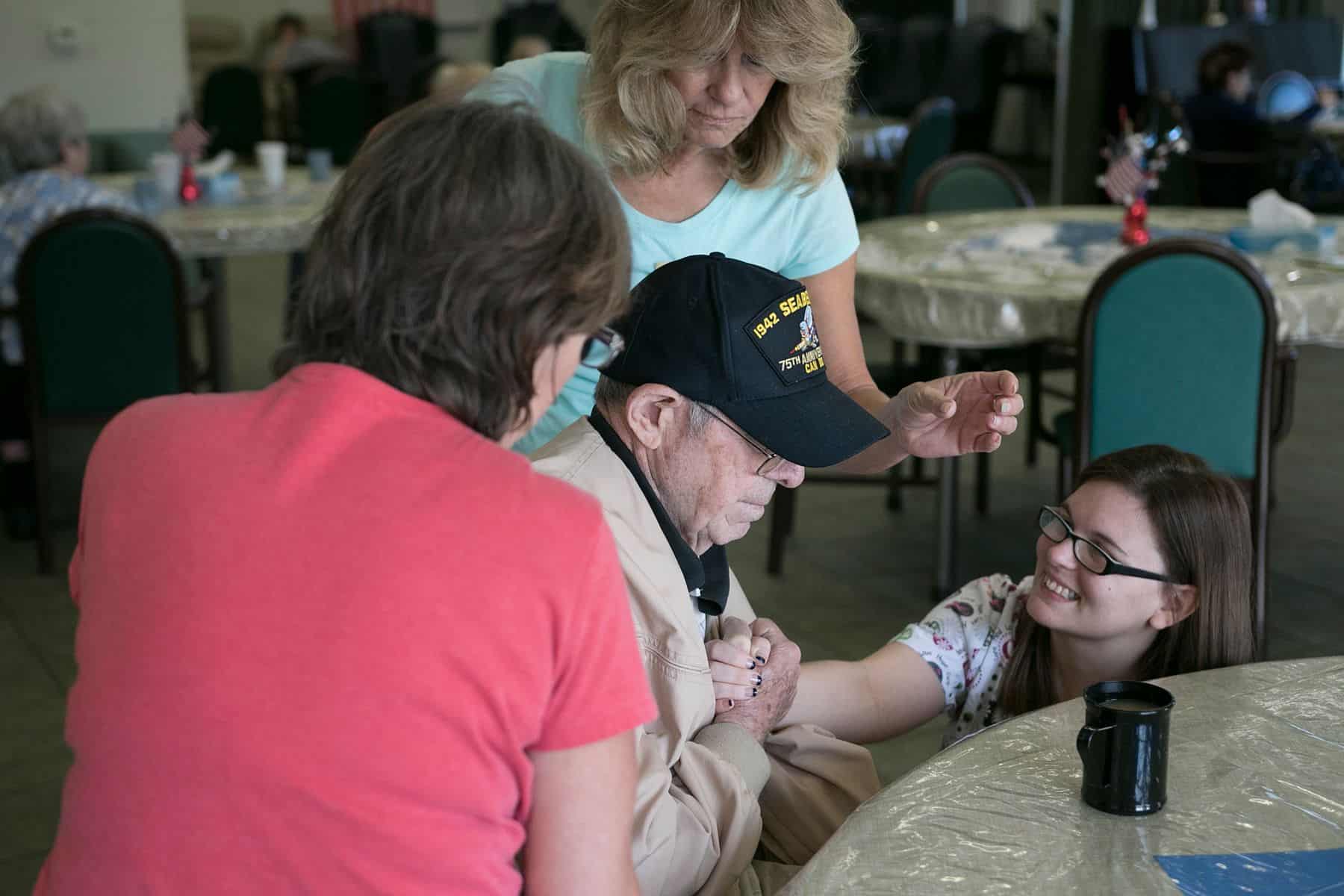
February 14-21 marks a special week for Coleman Professional Services and Coleman Adult Day Services.
The National Council of Certified Dementia Practitioners (NCCDP) reminds us there are no national standards for dementia education. However, they recommend that all staff members that work with Alzheimer’s and dementia patients receive at least eight hours of dementia training, and at least one person becomes a Certified Dementia Practitioner (CDP), of which we are striving to complete this year.
As an organization that helps and treats individuals with Alzheimer’s Disease and Dementia, this is a week focused on fostering sensitivity and respect for our patients and our staff.
Today’s blog post will highlight the differences between the diseases, current treatment options, and other ways to receive help.
Navigating Dementia & Alzheimer’s – From Diagnosis to it’s Final Stages
Upon receiving a diagnosis, caregivers and their loved ones are faced with a million questions. How long until the disease progresses? Can I afford long-term care for my loved one? How can I anticipate their needs?
These questions are why it’s important to find a trusted resource like Coleman Adult Day. A weekday adult day care that specializes in caring for those with Dementia & Alzheimer’s, Coleman Adult Day helps support both patients and their loved ones.
From advising you on home safety hazards to recommending activities to keep your loved one’s mind sharp, it’s critical to find an experienced care provider that can support you and your loved one through every step of the journey.
Determining a Dementia Diagnosis
Diagnosing dementia can be difficult, and there is no one test to do it.
However, if you notice your loved one is increasingly forgetful, misplacing items, confused in familiar settings, or having drastic mood swings, these are usually signs, something neurological is going on with them.
Several physical, cognitive, neurological, and psychiatric evaluations must take place. Also, your physician may order the following tests:
- CT
- MRI
- PET
- B-12 & thyroid labs
Upon completion of this battery of tests, physicians can determine with a relatively high degree of confidence whether or not the patient has dementia.
If you’re still unsure about taking your loved one to get tested, learn more about the Warning Signs of Dementia here.
Dementia Treatment
- Cholinesterase inhibitors treat vascular, Parkinson’s disease, and Lewy body dementia cases.
- Prescription Memantine works for the regulation of glutamate activity.
- Occupational therapists work with patients to make their homes safer, reduce clutter, and streamline the process of getting to the bathroom, bedroom, and family room.
What is Alzheimer’s disease?
Alzheimer’s disease is an irreversible, progressive brain disorder that slowly destroys memory and thinking skills. Caused by dementia, it’s unlike dementia because there is no battery of tests to ensure someone has Alzheimer’s.
Alzheimer’s Treatment Options
For mild to moderate Alzheimer’s, cholinesterase inhibitors reduce symptoms and help control some behaviors. For moderate to severe cases, an N-methyl D-aspartate antagonist prescription allows the patient to continue to do daily tasks (i.e., going to bed, brushing teeth) without assistance.
Lifestyle and Home Remedies for those with the Disease
If you’ve recently been diagnosed with dementia or you want to try and keep it at bay, here are eleven tips that help with brain health:
- Learn a new language
- Play a musical instrument
- Play board games
- Work on crossword or Sudoku puzzles
- Adjust your diet
- Exercise
- Purchase a pet
- Get a massage
- Dance, paint, garden, cook
- Encourage visitors to come by
- Keep keys, wallet, smartphone and other valuables in the same location
- Establish a calming nighttime routine
How Can Caregivers Support Their Loved Ones
Usually, a caregiver spends the most time with the person with dementia or Alzheimer’s. Below are four tips to keep their stress levels in check:
- Learn as much as you can about the disease
- Join local support groups
- Spend time with family and friends
- Invest in respite care, such as what Coleman Adult Day Services offers
Coleman Professional Services Honor This Special Week
Whether you’re one of our valued employees, a person diagnosed with Alzheimer’s or dementia, or a caregiver, we recognize and appreciate you! And if you know someone who could benefit from Coleman Adult Day’s services, refer them here.
